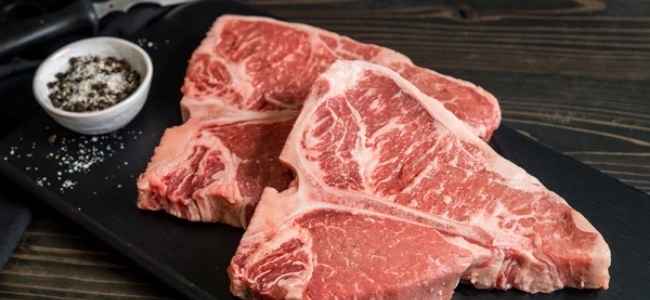Eating meat may be widely considered a dietary necessity to everyone who isn’t a vegan. However, it has recently become known that meat consumption does hurt the environment. Meat farms account for environmental destruction, and this is due to the vast number of meat farms required to meet the global demand. Fortunately, you don’t have to remove meat from your diet to lend a hand in saving the planet. These eco-friendly ways of indulging in various meats are great alternatives to switching meat for meat substitute products such as soy.
Shop For Quality Meats
Even though quality meats may cost a bit more, when shopping for quality, you are likely getting meat that is farmed the right way instead of inhumane methods of meat farming that focus on quantity over quality. What’s more, by indulging in quality meats such as USDA prime porterhouse and others, you will likely be indulging in healthier meats that are not pumped full of hormones and saline to make the product appear bigger than what it is before cooking.
Choose Chicken Over Pork
One of the main reason’s meat farming is so bad for the environment is the greenhouse gases released when farming certain animals. While you should shop for quality when purchasing specific meats such as beef and pork to ensure organic and ethical standards are met, you should prioritize poultry over these meats more often. Chicken requires less space to farm, and the entire process is a lot faster, suggesting that chicken farming has much less of an impact on the environment than other meats.
Eat Vegan Once A Week
While meat type and supplier will make a massive difference to the environment as unethical meat farmers could gradually be shuttered out from the market or forced to meet eco-friendly measures, you can also consider reducing your meat consumption. You don’t have to start eating vegan every day, although eating vegan meals at least once a week will reduce your consumption. You can also consider other sustainable foods that are good for the environment when eating vegan once a week. Suppose everyone in the world opted to eat less meat, the global demand would decline dramatically.
Choose The Right Seafood
Some fish are more sustainable than others, which is why you should consider your choice of seafood just as you do other meats. Instead of eating just any seafood delicacies and casual dishes, you should consider sustainability. Anchovies and most other smaller fish are considered sustainable, while fish such as salmon, shrimp, and crab are not sustainable.
Buying your meat from ethical suppliers and considering farming methods is crucial for caring for the environment. Even though you may only be feeding yourself or one household, every person on earth plays a vital role in the planet’s condition. So instead of assuming one meal won’t make that much of a difference, you should consider how each eco-friendly decision, no matter how small, will be one step closer to changing the ideals of the world. The more people who start eating meat sustainably, the less of a problem meat farming will become.


